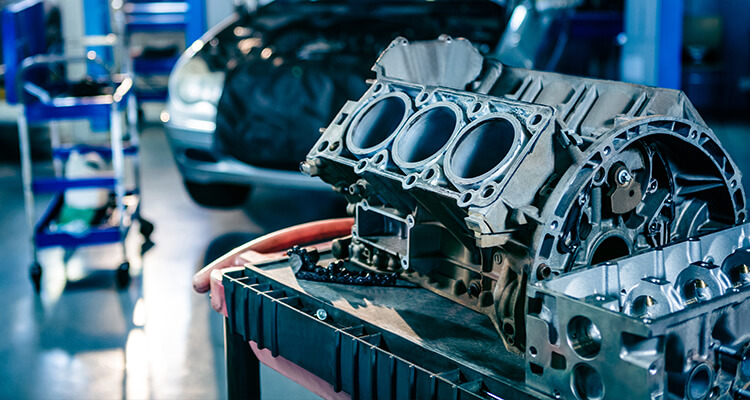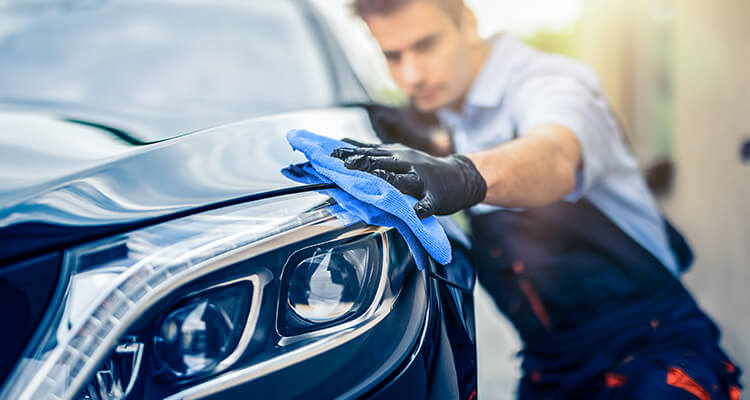A careful look at how the cost of fuel has risen over the years, ending with the high price of fuel today, may well motivate you to buy one of these ten most fuel-efficient cars available in South Africa in 2017.
(1) Nissan Leaf (0 L/100 KM)
This all-electric car was introduced into South Africa in 2013, but sales have not exactly been great. Perhaps this is due to the going price of R500 550, which may be a bit too much for most motorists. The source of power is a 24-kWh, lithium-ion battery connected to an 80-kW electric motor. The travel range of the Leaf is a maximum of 190 km, after which the car battery can be recharged from a normal power source, or for a quick-charge at various garages across South Africa. The car makes efficient use of its energy by reducing friction through improved aerodynamics. There is also a regenerative braking system, and the E-powertrain operates at greater efficiency. Through the use of a heat pump, the new heating system has become 70% more efficient. The battery charge time has been halved compared to that of the previous model.
(2) BMW i3 (0 L/100 KM)
Owing to its overall high quality design, the BMW i3 won the 2016 ‘Design of the Year’ award as well as the ‘Game Changer of the Year’ award. Motorists can either buy the all-electric model for R606 800, or the ‘range extender’ model for R683 600, which has a range of 300 km, because of a small-capacity petrol engine which is in combination with the electric motor. The BMW i3 is the world’s best-selling all-electric car. The car is powered by a lithium-ion battery with a capacity of 33 kWh, and is stored under the car’s floor. The electric motor has a power output of 125 kW, enabling the car to complete the 0-100 km/h in 7.3 seconds, with a maximum speed of 150 km/h. BMW’s Dynamic Stability Control allows for great handling of the car, whilst Dynamic Traction Control provides optimal control of the vehicle at higher speeds and cornering.
(3) BMW 330e eDrive (1.9 L/100 KM)
The BMW 330e is a hybrid car, which uses an electric motor and battery that can be charged from a usual wall socket, or a 2-litre turbo-petrol engine. The car is able to go electric for 40 km, after which the petrol engine takes over. The two sources of power can deliver a combined 185 kW of power. The BMW 330e will cost R767 400.
The advantage of using an electric motor is that it supplies instant torque and acceleration. It takes 6.1 seconds to achieve the 0-100 km/h, and reaches a maximum speed of 227 km/h. Fuel consumption is a staggering 2.11 litres/100 km. The lithium-ion battery, with a capacity of 7.6 kWh, is positioned underneath the boot. In the Comfort driving mode, the electric motor is managed to provide economical and comfortable driving.
(4) BMW i8 (2.1 L/100 KM)
The 1485-kg BMW i8 hybrid sports car provides 266 kW power from its electric motor and 3-cylinder, 1.5-litre, turbo petrol engine. The Cooper petrol engine is able to produce, on its own, a staggering 172 kW. Its strong point is an astonishing fuel consumption of 2.1 litres/100 km. It is able to do the 0-100 km/h in just 4.4 seconds, and can reach an electronically-controlled limit of 250 km/h. But, all this comes at a price – namely, R2 015 300.
(5) Volvo XC90 T8 Twin Engine (2.1 L/100 KM)
The Volvo XC90 came top in the Premium SUV Category of the Cars.co.za Consumer Awards. The hybrid car has an electric motor, providing 65 kW of power to the rear axle, whereas the front wheels receive, via an 8-speed automatic transmission, 235 kW of power from a turbocharged and supercharged, 2-litre, petrol engine. The combined power output for this Twin Engine is 300 kW, with fuel consumed at a rate of 2.1 litres/100 km. However, fuel consumption is not all that good when the battery runs out of power, which it does quite quickly if the car is driven fast. At this pace, fuel consumption has been seen as high as 10 litres/100 km.
The 9.2-kWh battery has not taken up any boot space, but is cleverly tucked away in the tunnel that runs down the middle of the car. The 0-100 km/h is claimed to take 5.6 seconds. The price tag of the car is R1 117 600.
(6) Mercedes-Benz S500e L (2.8 L/100 KM)
This hybrid car, selling for R1 931 800, consists of a 3-litre, turbocharged, V6 petrol engine, developing 325 kW of power, and requiring fuel at a rate of 2.8 litres/100 km.
The S500e was introduced to South Africa in 2016. It is powered by a V6, biturbo, petrol engine, and an 8.7 kWh battery-operated electric motor. The total power output is 325 kW. The electric motor on its own can only provide a range of 33 km, and under ideal conditions, a fuel consumption of 2.8 litres/100 km can be achieved. The battery can be recharged the normal way via a wall plug, or via brake energy regeneration.
(7)Mercedes-Benz C350e (2.8 L/100 KM)
The C350e is powered by a 2-litre, turbo-petrol engine, as well as by a 60-kW electric motor, providing 31 km of fuel-less driving. Total power output is 205 kW. It takes about 2 hours to charge the heavy 100-kg, 6.2-kWh battery. As is the case of many hybrid cars, the battery unfortunately takes up some boot space. The 0-100 km/h takes 5.9 seconds. There is doubt whether the claimed 2.1 – 2.4 litres/100 km can be achieved. The current price is R804 900.
(8)Mercedes-Benz GLE500e 4MATIC (3.3 L/100 KM)
Fuel consumption by the GLE500e is claimed to be 3.3 litres/100 km. The car is powered by a turbocharged, 3-litre, V6 petrol engine, working together with an electric motor. The total power output is 325 kW. The car sells at R1 310 000. The GLE500e’s sources of power is a 245-kW, V6, direct-injection, turbo-petrol engine, as well as an 85-kW, electric motor. What is remarkable is that the 2.5-metric ton car can go up to 130 km/h, powered only by electricity. A 7G-Tronic conventional automatic gearbox is used by the two power sources to drive all four wheels. Fuel consumption is below 4 litres/100 km. The car can accelerate 0-100 km/h in 5.3 seconds.
(9) BMW X5 xDrive40e (3.3 L/100 KM)
The BMW X5 is a rival to the Volvo XC90 T8 Twin Engine, and is powered by a 180-kW, 2-litre turbocharged petrol engine, connected to an 83-kW electric motor. Total power output is 230 kW, with fuel consumption claimed to be 3.3 litres/100 km. The price tag is R1 118 600. The car is claimed to be capable of 0-100 km/h in 6.8 seconds, reaching a top speed of 210 km/h.
(10) Porsche Cayenne S e-Hybrid (3.4 L/100 KM)
The hybrid Porsche Cayenne is claimed to consume fuel at 3.4 litres/100 km. The car is powered by a supercharged, 3-litre, V6, petrol engine coupled to an electric motor, which together develop 306 kW. The price tag is about R1 531 000.
A 10.9-kWh battery provides the car with a driving range of 18-36 km, depending on the intensity of driving. The Porsche Cayenne does 0-100 km/h in less than 6 seconds, and can get to a top speed of 242 km/h at a claimed fuel consumption of 3.42 litres/100 km.
What about efficient insurance purchases?
Fuel-efficient cars are great, but what about efficient car insurance purchases? Buy car insurance online and read more about car insurance here.
Sources:
- Top 10 Most Fuel Efficient Cars in SA (2017)
- Nissan Leaf Motoring Review
- Facelifted BMW i3 Revealed
- BMW 330e plugged into hybrid technology design
- User review: Driving BMW’s i8 sports car
- Volvo XC90 T8 Twin Engine AWD Inscription (2016) Review
- Mercedes-Benz S 500 e Introduced to SA
- Mercedes-Benz C350e (2016) Review
- First drive: Merc’s smart new GLE
- BMW X5 xDrive40e (2016) First Drive
- Peppered-up Porsche Cayenne for SA








